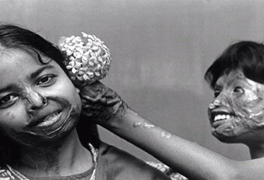
Violence is in the news more than ever before.
There are some types of violence that are often discussed and other types which are more hidden and insidious. Every year, hundreds of women and/or children are victims of chemical attacks by members of their family circle. This is notably the case in Bangladesh, but it also occurs in India and in some Caribbean countries.
Because of a lack of immediate effective patient management, unacceptable ocular and cutaneous after-effects are generated. These are added to the major psychological difficulties and to social exclusion which are often insurmountable. Lives suddenly become living nightmares.
The Acid Survivor’s Foundation (ASF), founded in 1999, has determined it’s goal to be the registration of all types of acid attacks, principally sulphuric and nitric, to guarantee medical attention, to collect funds and to co-ordinate the accompanying actions of victims of these attacks so that the horror is not forgotten.
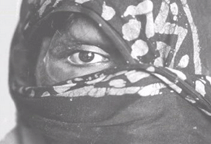

What ASF strives for
- The improvement of medical follow-up care and the healing/repairing of damaged tissue with, in Dhaka, a permanent reception facility and a team of plastic surgeons.
- To accompany victims in their psychological counselling, legal recourses and to promote their reinsertion into society.
- For earlier and more effective victim management, by means of information about prevention available to the people concerned (notably insisting on the utmost importance and necessity of emergency washing), and by the progressive establishment of local medical management units across the country.
PREVOR, committed to helping those who suffer from chemical burns has put its research and investigative resources at the disposal of the ASF to improve initial and secondary patient management (pain, inflammation, re-infection and healing), all while reducing costs.
In February 2006, a scientific and medical team from our research laboratory travelled to Bangladesh to create a partnership with the ASF and the Burn Centre at the Medical College Hospital in Dhaka.
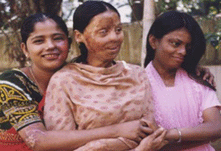
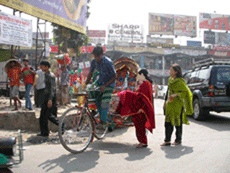
The conclusions of the clinical study carried out by Dr. H. Merle in association with all the actors in patient management in Martinique, shows the benefits of delayed treatment, both at the location of initial treatment and at the hospital, of chemical ocular burns. Better results are obtained with:
- initial decontamination with the DIPHOTERINE® solution compared to saline solution,
- an evaluation of the seriousness of the burn,
- a treatment applied according to the seriousness of the burn.
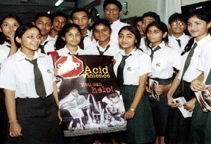
This treatment, notably combining vitamin C and local corticoids, allows the inflammation to be controlled and optimises healing. This study has also showed that the advantage of the DIPHOTERINE® solution versus saline solution is a more rapid reepeithelialisation with a decrease in the number of complications.
These results are explained by the need for the decontamination of an active chemical on the tissues, even if it is delayed.
The Prevor research team and its network of international medical experts have proposed a protocol adapted to the Bangladesh problem. The protocol has been finalised with the approval of the ASF as follows:
- washing procedure,
- management of pain and inflammation,
- associated treatments,
- with the goal of making patient management easier and reducing side-effects.
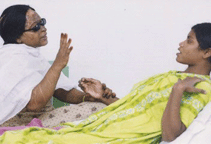
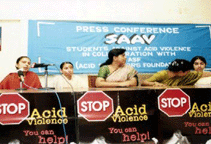
After receiving the approval of scientific experts and the ethical commission, the project will begin, lasting for a period of 6 months. It should allow a solution to be found, not only for the people of Bangladesh, but also for the citizens all other countries where this particularly extreme type of violence occurs.
We hope to contribute to the prevention and a reduction in the number of side effects due to these extremely severe and mutilating burns. We also aim to significantly improve the healing process. All of this because of:
- the reduction of the contact time of the chemical with the tissues,
- the optimisation of the effectiveness of the initial washing,
- the secondary application of associated therapeutic protocols.
In the long term, it is hoped that our work will reinforce the fundamental advancements already established by ASF’s multidisciplinary team in the areas of prevention, healing, legal aid and social services. The common goal being to give back to women and children, the principal victims of these attacks, their dignity, legal rights and a place in both their families and the greater society as a whole.
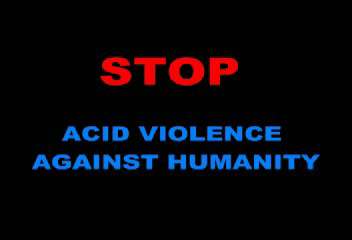
To learn more about the ASF and its work, please consult their website www.acidsurvivors.org or write to asf@acidsurvivors.org